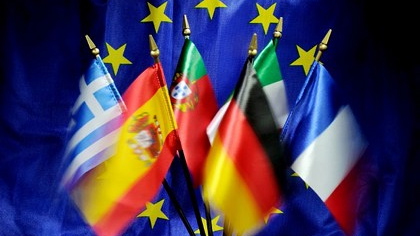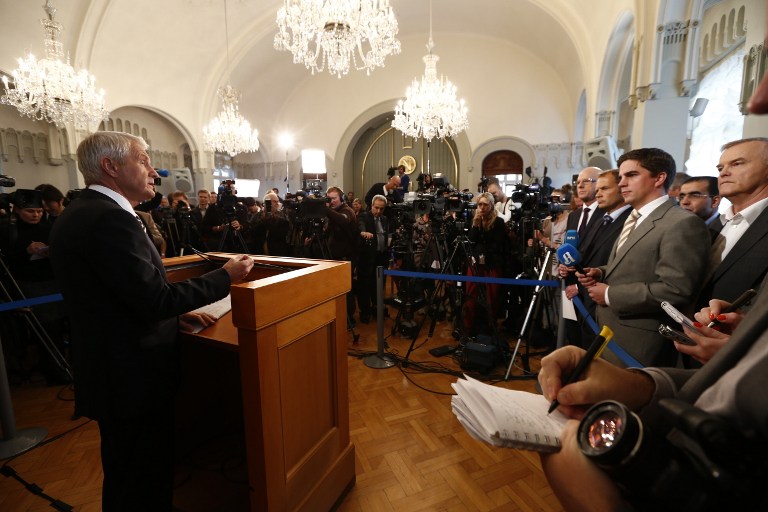SUMMARY
This is AI generated summarization, which may have errors. For context, always refer to the full article.

OSLO, Norway (UPDATED) – The Nobel Peace Prize was on Friday, October 12, awarded to the European Union, an institution currently wracked by crisis but is credited with bringing more than a half century of peace to a continent ripped apart by World War II.
“The union and its forerunners have for over six decades contributed to the advancement of peace and reconciliation, democracy and human rights in Europe,” Nobel Committee president Thorbjoern Jagland said in Oslo.
“Over a seventy-year period, Germany and France had fought three wars. Today war between Germany and France is unthinkable. This shows how, through well-aimed efforts and by building up mutual confidence, historical enemies can become close partners,” he said, explaining this year’s prize decision.
The award is however a surprise at a time when European solidarity is facing its most daunting challenge in decades amid deep rifts between a south drowning in debt and a wealthier north, led by Germany, only reluctantly coming to the rescue.

Whether or not that begrudging assistance will keep the European project afloat remains to be seen, but the deep crisis has broadened the gulf already felt between citizens in the different member states and a Brussels long seen as too distant and bureaucratic.
But the creation of the organisation is credited with helping to bring peace and stability to the war-torn continent by bringing together arch-enemies France and Germany and herding them down the same path.
Despite recurring difficulties, the EU has become the biggest common market in the world, allowing free circulation of goods, people, services and capital.
Over the years, the pioneering project has swelled to encompass 27 countries which not long ago sat on either side of the “Iron Curtain”.
They came to the table with vastly different economic, social and cultural situations, but following intense integration efforts, a full 17 of them now share a common currency.
This year’s prize will also cause shockwaves in host country Norway, which itself has rejected joining the union twice, in 1972 and 1994, and where three quarters of the inhabitants today say they are opposed to membership, according to recent polls. – Agence France-Presse
Add a comment
How does this make you feel?
There are no comments yet. Add your comment to start the conversation.